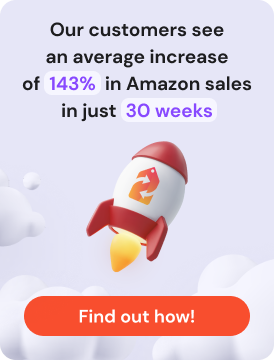Gastbeitrag von Jessica Bruce von ShopyGen
Shopify ist derzeit eine der meistgenutzten E-Commerce-Plattformen der Welt und hat bereits über 600.000 E-Commerce-Shops im Internet betrieben. Ganz gleich, ob Sie ein Einzelunternehmer sind, ein kleines Unternehmen mit begrenzten Investitionen oder eine große Marke, die ihr begrenztes Inventar über ihren privaten Kanal verkaufen möchte, Shopify ist die häufigste Antwort auf Ihre Bedürfnisse.
Shopify ist jedoch keine dauerhafte Antwort auf alle E-Commerce-Anforderungen. Die Plattform hat ihre Vor- und Nachteile, die sie in bestimmten Situationen ideal und in anderen überflüssig machen. Nicht jedes E-Commerce-Unternehmen ist gleich, was die Bedürfnisse, die Größe des Katalogs, die Investitionen, die Größe des Teams und andere Aspekte betrifft.
Manchmal sind die Vorteile von Shopify für Unternehmen nicht so wichtig, wie die Nachteile es sind. Ein seriöser Unternehmer, der sein Geschäft ausbauen möchte, sollte die Vor- und Nachteile von Shopify und Shopify-Alternativen abwägen, bevor er einem Trend folgt.
Vorteile von Shopify
Shopify ist eine SaaS-Lösung (Software as a Service) für E-Commerce-Unternehmen. Um einen Shopify-Shop zu besitzen, müssen Sie nur einen geeigneten Plan auswählen, sich anmelden, Zugangsdaten erhalten und Ihren Shop in einer Webanwendung einrichten.
Die Webanwendung wird bereits gehostet, so dass Sie sich keine Gedanken über die Installation von Skripten, die Servereinrichtung oder das Webhosting machen müssen. Es ist die perfekte Lösung für technisch nicht versierte Inhaber eines Online-Shops, ohne dass Sie sich darum kümmern müssen.
Darüber hinaus kümmert sich das Shopify-Team um die Sicherheit Ihrer Website, die Wartung der Website, Sicherheits-Patches, Technologie-Stack, Zahlungs-Gateways und andere wichtige Tools. Wenn Sie ein neues Merkmal auf Ihrer Website benötigen, können Sie fertige Shopify Apps kaufen und installieren, was extrem einfach ist.
Kurz gesagt, Sie können sich auf das Wachstum Ihres Unternehmens mit Ihren Marketingstrategien konzentrieren, während sich Ihr SaaS-Anbieter um alles Komplexe und Technische für Sie kümmert.
Sie erhalten ein webbasiertes Dashboard, von dem aus Sie Ihren gesamten Shop verwalten, Produkte hochladen, Besucherzahlen verfolgen, Marketingkampagnen starten, Rabatte anbieten, Umsätze analysieren und neue Shopify-Apps installieren können, usw.
Nachteile von Shopify
Der größte Grund, der Shopify so attraktiv macht, ist auch dafür verantwortlich, dass einige Unternehmer das Geschäft abbrechen.
Das verwaltete SaaS von Shopify ist in einigen Aspekten eingeschränkt:
- Sie erhalten keinen Zugriff auf die Quelle.
- Sie können Ihren Webshop nicht auf eigene Faust anpassen.
- Die einzige Möglichkeit, neue Merkmale hinzuzufügen oder etwas anzupassen, besteht in der Installation einer Shopify-App.
- Sie müssen eine monatlich wiederkehrende Gebühr zahlen, solange Sie Shopify nutzen möchten.
- Für jede Shopify App, die Sie in Ihrem Shop installieren, müssen Sie eine zusätzliche monatliche Gebühr bezahlen.
Die Einschränkungen sind jedoch nicht der einzige Grund für die Ablehnung. Das größte Problem sind die Kosten, die Sie für den einfachen Zugang, die nutzbaren und erweiterten Merkmale und die Anzahl der Produkte im Katalog bezahlen müssen.
- Obwohl der günstigste Shopify-Tarif bei $29/Monat beginnt, ist der Basis-Tarif kaum nutzbar.
- Sie erhalten eingeschränkte Analysen, nur zwei Mitarbeiterkonten und eine Beschränkung der Anzahl der Produkte, die Sie auflisten können.
- Neben der monatlichen Gebühr teilen Sie Ihre Einnahmen in Form von Transaktionsgebühren auf folgende Weise:
Wenn einer der folgenden Fälle auf Sie zutrifft, sollten Sie sich nach Shopify-Alternativen umsehen:
- Eine monatliche Gebühr für die Nutzung der Software zu zahlen, ist eine große Sache
- Sie möchten keine Transaktionsgebühren für begrenzte Zahlungsmöglichkeiten zahlen.
- Sie möchten Zugang zum Quellcode oder bessere Anpassungsmöglichkeiten
- Sie wollen sich nicht zu sehr von SaaS-Anbietern abhängig machen
- Die Merkmale von Shopify sind nicht ideal für Ihre Nische
- Sie suchen nach einer günstigeren Shopify Alternative
Top Shopify Alternativen für verschiedene Zwecke
1. BigCommerce (kommt Shopify am nächsten, ohne Transaktionsgebühr)
BigCommerce ist die am besten geeignete Shopify-Alternative mit ähnlichen Merkmalen, kostet aber etwas weniger. Es ist ebenfalls eine SaaS-Lösung wie Shopify und bietet eine ähnliche Preisstruktur.
Sie müssen jedoch keine zusätzlichen Transaktionsgebühren für die Verwendung von Zahlungslösungen von Drittanbietern zahlen, außer für PayPal. Wenn Sie auf der Suche nach einer SaaS-Plattform sind, die keine Beschränkungen hinsichtlich der Anzahl der Produkte, die Sie verkaufen oder hochladen können, aufweist, ist BigCommerce eine perfekte Alternative.
Außerdem können Sie so viele Mitarbeiterkonten anlegen, wie Sie möchten. Durch die Möglichkeit, benutzerdefiniertes MTML und CSS über das Dashboard hinzuzufügen, haben Sie eine bessere Kontrolle über das Aussehen und die Gestaltung Ihrer Website. Der Prozess zur Erstellung eines Online-Shops mit BigCommerce ist derselbe wie bei Shopify.
Alles ist gehostet und online, und sie haben einen preisgekrönten Kundendienst.
Vorteile von BigCommerce
- Keine Transaktionsgebühren bei der Nutzung der meisten Drittanbieter-Zahlungsoptionen.
- Bessere Anpassungsfähigkeit und Skalierbarkeit als Shopify.
Beschränkungen
- Kein Zugriff auf den Quellcode, daher eingeschränkte Anpassungsmöglichkeiten im Vergleich zu Open-Source.
- Zusätzliche Gebühr, wenn Sie PayPal für Kreditkartentransaktionen verwenden.
2. Volusion (älter als Shopify selbst)
Volusion ist eine der ältesten SaaS-basierten E-Commerce-Plattformen auf dem Markt. Die Popularität von Volusion, das 1999 ins Leben gerufen wurde, hat durch Konkurrenten wie Shopify und BigCommerce einen Dämpfer erhalten, ist aber nicht weniger effektiv.
Das Beste an Volusion ist, dass es schon so lange auf dem Markt ist. Nach Jahren des aktiven Dienstes verfügt Volusion heute über eine bessere Dokumentation und Ressourcen als jede andere E-Commerce-Lösung auf dem Markt.
Volusion ist mit Shopify und BigCommerce vergleichbar, sowohl was den Preis als auch die Merkmale angeht. Wenn Sie auf der Suche nach einer anständig anpassbaren Shopify-Alternative sind, ohne extra Geld für Drittanbieter-Apps auszugeben, könnte Volusion eine gute Alternative sein.
Vorteile von Volusion
- Umfassende Dokumentation und ausgezeichneter Kundensupport.
- Keine Transaktionsgebühren bei der Verwendung von Zahlungsgateways Dritter, einschließlich PayPal.
Nachteile von Volusion
- Eine Transaktionsgebühr von 2,15% + $0,30, wenn Sie das Zahlungssystem von Volusion verwenden.
- Die Anzahl der Apps und Erweiterungen ist nicht höher als bei Shopify.
3. ShopyGen (Open-Source Shopify-Alternative für Nischenideen)
Wenn Sie mehr als nur eine begrenzte E-Commerce-Website starten möchten, oder etwas sehr Individuelles für Ihre Nische mit den besten Aspekten des E-Commerce, des Multi-Vendor-Marktplatzes, des Bloggens und der Anpassbarkeit, ist ShopyGen die beste Alternative für Sie.
Es handelt sich nicht um eine einzelne Lösung, sondern um eine Sammlung verschiedener Open-Source-Skripte, die Sie je nach Ihrer Geschäftsidee einbinden können.
Zum Beispiel der Multi-Vendor-Marktplatz, die Lieferung von Lebensmitteln auf Abruf, die Lieferung von Lebensmitteln auf Abruf, der P2P-Mietmarktplatz und vieles mehr. Der beste Aspekt einer Open-Source-Lösung ist der Zugang zum Quellcode, der unbegrenzte Anpassungsmöglichkeiten bietet.
Außerdem müssen Sie sich keine Sorgen über die maximale Anzahl von Produkten machen, die Sie in Ihren Katalog hochladen können. Mit einer etwas höheren Investition können Sie auch mobile Apps für Ihren Shop erhalten.
Vorteile von ShopyGen
- Open-Source und selbst gehostete Alternative ohne monatliche Gebühr; einmaliges Zahlungsmodell.
- Unbegrenzte Anpassungsmöglichkeiten ohne Abhängigkeit vom Softwareanbieter.
Nachteile von ShopyGen
- Kompliziertere Einrichtung, Bereitstellung und Pflege des Shops als Shopify.
- Sie müssen einen Webhosting-Plan erwerben, um den Quellcode zu hosten.
Preisgestaltung
Verschiedene Skripte sind zu unterschiedlichen Preisen erhältlich. Sie müssen jedoch nur einmal für den Kauf des Quellcodes bezahlen. Es gibt keine wiederkehrenden Gebühren. Die Skripte können zwischen $600 und $3000 liegen, je nach Ihren Anforderungen.
4. Big Cartel (SaaS-Alternative für Künstler und Kreative)
Big Cartel ist eine SaaS E-Commerce-Plattform für spezialisierte E-Commerce-Geschäfte in Nischen wie Kunst, Heimwerken und Kreativwirtschaft. Wenn Sie als Künstler, Fotograf, Musiker oder Content Creator eine unabhängige Plattform suchen, ist Big Cartel die richtige Adresse für Sie. Big Cartel könnte eine großartige Alternative nicht nur zum teureren Shopify, sondern auch zu Drittanbieter-Marktplätzen wie Etsy sein.
Der beste Aspekt von Big Cartel ist sein kostenloses Starterpaket, mit dem Sie bis zu fünf Produkte verkaufen können, ohne eine monatliche Gebühr zu zahlen. Außerdem sind die Premium-Pläne viel günstiger als die anderer SaaS-Plattformen auf dem Markt.
Vorteile von Big Cartel
- Personalisiert für Künstler und mit Integrationen wie Google Analytics, Facebook und PayPal.
- Es gibt einen kostenlosen Plan und Sie müssen auch keine Transaktionsgebühr bezahlen.
Nachteile von Big Cartel
- Nicht geeignet für große eCommerce-Unternehmen, die mit Allzweckprodukten handeln.
- Da es nicht allzu viele Einträge unterstützt, fehlt es den Benutzern an Merkmalen für die Suche.
5. 3DCart (eine weitere leistungsstarke SaaS-Alternative)
Die Entwickler von 3DCart haben es als privates Projekt ins Leben gerufen, aber erst nach 2001 für die Öffentlichkeit freigegeben. In Bezug auf Merkmale und Preise konkurriert 3DCart direkt mit Shopify, BigCommerce und Volusion. Wie bei den meisten Shopify-Alternativen gibt es auch bei 3DCart keine Beschränkungen für die Anzahl der Produkte, die Sie verkaufen können, mit Ausnahme eines billigeren Starter-Tarifs mit einem Limit von 100 Produkten.
Der größte USP von 3DCart ist seine native Unterstützung für Amazon Fulfillment. Wenn Sie auch Verkäufer bei Amazon sind, bietet 3Dcart Ihnen die einfachste Möglichkeit, über ein zentrales Dashboard gleichzeitig auf Ihrer Website und bei Amazon zu verkaufen.
Vorteile von 3DCart
- Der Basisplan ist günstiger als Shopify und unterstützt bis zu 100 Produkte.
- Sie können benutzerdefiniertes HTML und CSS hinzufügen, um Ihre Themen anzupassen.
Nachteile von 3DCart
- Die besten Merkmale sind nur in den High-End-Tarifen über $79/Monat enthalten.
- Shopify ist benutzerfreundlicher. Für Neulinge könnte es etwas kompliziert sein.
Ehrenvolle Erwähnung: Magento (für große Websites)
Magento ist eine der leistungsstärksten E-Commerce-Plattformen, die es derzeit auf dem Markt gibt. Es ist jedoch keine geeignete Lösung für Einsteiger oder kleine Geschäfte. Die Möglichkeiten von Magento sind nicht nur in Bezug auf die Merkmale, sondern auch in Bezug auf die Preise zu umfangreich.
Magento ist jedoch nicht weniger kompetent als jede andere Shopify-Alternative auf dem Markt. Für Magento gibt es sowohl Open-Source-, selbst gehostete (Community Edition) als auch gehostete (Platform as a Service) Optionen. Beide sind gleichermaßen kompetent, außer dass der gehostete Service (Enterprise Edition) mit einem ausgezeichneten Kundensupport ausgestattet ist.
Wenn Sie ein technisch versierter Administrator sind, können Sie mit der Open-Source-Option eine anständige Summe sparen. Wenn Sie das nicht sind, aber eine leistungsstarke Lösung suchen, ist Magento Enterprise mit seinen Managed Services die richtige Wahl. Ich hoffe, dieser Vergleich hat Ihnen geholfen, das zu finden, wonach Sie suchen.
Beginnen Sie noch heute mit der Preisanpassung mit dem schnellsten Repricer, der bei Amazon, eBay, Shopify, Magento, BigCommerce und mehr funktioniert.





